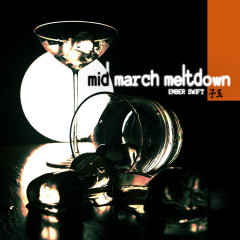Trip Wires
On one of our early visits back to Shandong, I really got a taste of China’s one-child policy. Critics argue that among other negative repercussions of this policy (that was implemented in 1979) is the huge population of full-grown little princes and princesses that China has now produced. The first wave of these spoiled kids are all around age 30 now.
Guo Jian’s age.
We were staying at his parent’s house and I was shocked speechless at how he ordered his mother around, criticized her cooking, insisted his dad take him out to buy new running shoes at the snap of his fingers and then was repeatedly late for dinner because whatever he was doing was clearly more important to him than being on time for a dinner cooked (or paid for) by someone else.
Mostly, I was shocked at how easygoing about all this his parents were. They took it. They didn’t protest. They didn’t want to kick his ass like I did. Obviously, they didn’t mind.
Guo Jian is the only male child from a man who was also the only male child in a family of seven. Whether Guo Jian’s dad was spoiled or not I don’t know, but he is a soft spoken, understated man who has an easy smile and caring nature. Still, he was the only one who was going to carry on the family name. When their family was relegated to only one child, everyone breathed a sigh of relief when that child turned out to be male. Guo Jian, then, is like the “prince of the prince” and his extended family treats him accordingly.
One night long before we were married, we were in his hometown and heading out to eat dinner at a restaurant with his aunts and uncles on his father’s side. Guo Jian decided, at the last minute, that he had to go for a run and couldn’t be at the restaurant for 6:30pm. I was shocked. I argued with him to go running after dinner or the next morning. I appealed to his filial piety and reminded him that there were going to be a lot of people waiting for us who were technically our elders. That traditional Chinese angle didn’t work on him. He was out the door in his sneakers before I could try another angle.
By 7:30, we arrived at the restaurant. I was mortified. I apologized to everyone for being late and then pointedly said, “Someone had to go running” and looked at Guo Jian disapprovingly. They all laughed because they know him and they weren’t concerned. My Western apologies were waved away awkwardly.
I was so embarrassed, though, that I brought it up with him again as we were walking to the bathroom after the meal was over. He got so agitated that he started fighting with me right there in the restaurant, within earshot of the table. In fact, I’m sure it was strategic because he stopped walking in order to raise his voice as though he were suddenly on stage.
This made me doubly mortified. In his eyes, personal matters are family matters. I kept saying, “Keep your voice down” and “I don’t want to fight here” but he was well into his princely role by then and the script was rolling along at quite a clip. Tantrums when they’re children become obnoxiousness in public restaurants in front of extended family when they’re adults.
As his frustration with me “butting in” and “imposing my culture on his” got louder, I realized that I had to either defend myself or walk away, and I chose the latter with a punctuated and not very articulate final statement that was the weightless verbal punch of, “You are so not okay.” (你太不行了 ni tai bu xing le)
When I got back to the table a few moments before he did, my cheeks were on fire. I was humiliated. The family told me to not mind him and that his “脾气不好 piqi bu hao,” or that he has a “bad temper.” I couldn’t just sweep it away like this. Someone said to me that I will slowly “把他关起来 ba ta guan qi lai” and everyone laughed. I have always interpreted that as “whip him into shape,” but I honestly have never looked it up. (Please tell me if this is the wrong interpretation!) My response was, “Somebody has to!” Then they laughed some more while nodding their approval.
These were the early moments when I was sure that he and I wouldn’t make it. Taming an only child was not on my list of things to do. The problem with all these doubts, though, was that my love for him seemed housed in a wild place in some deep inner core of my heart. It would rise up and resist when I wanted to give up. Like a trip wire, it would catch my toes the moment I contemplated buying a one-way flight back to Canada and chalking it up to “an experience.”
So, when his behaviour was ridiculous, and my love for him tripped me up in it, I found it really hard not to punish myself for choosing him. Why him? I’d ask myself. Is this payback for some bad karmic choices? Do I deserve to be dealing with this? How can I still be loving him after he’s acted this way? Are his dimples that cute?
And as you all know from this blog, it wasn’t all bad. We got through it.
I’ve learned over time that his episodes are simply his episodes. I fell in love with someone who is in process, like I am, like everyone is. He’s also grown up a lot since those days and has witnessed the way that I interact with my own parents, which contextualizes my horrified responses to things like being late for that dinner. And just to stand in his corner for a moment, he brings up issues much less often in front of his parents now, or backs off when he sees that look in my eye, which is his way of honouring some of my culture about all of this.
What’s more, my instinct to walk away is actually key. I can walk away from the situation; but I don’t have to walk away from the person. I’ve learned that it only becomes a serious drama when I contribute to the performance. And after I’m unwittingly on stage too, those dramas are often, much to my disappointment, enacted in front of his family—particularly his parents. The trick is to never step on stage.
In Chinese culture, the family is there to make sure you do make it. I have heard many stories in which family members have stepped in to counsel couples on how to solve their marital issues to avoid divorce. It’s a huge loss of face for Chinese families to experience divorce. Hence, it’s not just about the couple; it’s a family issue.
In the West, we call this “interference.”
As a result, Guo Jian has no problem fighting in front of his parents. It’s not strange. To him, family is not the public and nothing needs to be private from them. At the time, we didn’t see them regularly so, for me, fighting in front of them was shameful and heartbreaking. In my Canadian culture, it’s a huge loss of face for me to have them see and hear us in that state, not to mention the fact that it was contributing negatively to their experience with us. I found it so hugely inconsiderate to all parties that I couldn’t find the words to embody my disgust with him for doing it. In 2008 when we went back to Canada, at least our words were cloaked by a language that my parents didn’t understand. (Besides, they still think that all Chinese sounds like arguing anyway!) But, Guo Jian’s parents understood every word.
It didn’t take me long to ascertain, though, that his parents could sometimes be the key to the solution. So, when it comes to issues that can’t seem to work themselves out between us, if I let the fight start up again, just a little, when his parents were around, I found they would naturally interfere, as this is the Chinese way. They’d help my language along when my emotions made me inarticulate in Mandarin and, better yet, they’d often back me up. They acknowledged my maturity over his—regularly—and when his temper had calmed down, they quietly hassled him for being the spoiled drama queen that he can often be (and who they created, but that’s another issue!), resulting in a faster resolution.
So not only do I have extended family now, but I have family who has my back. This is a precious commodity when you’re living overseas in a foreign land with no family members of your own in sight.
I guess the one-child policy comes with the spoiled brat syndrome until marriage and then, suddenly, his parents got the opportunity to have two children. I’m their second child (by marriage) and they’re here for me.
The trip wires have been deactivated.
Ironically, just after typing the last sentence, Guo Jian spontaneously came upstairs with a cup of tea for me and a backwards, desk-chair hug.
Princes can be princely after all.








